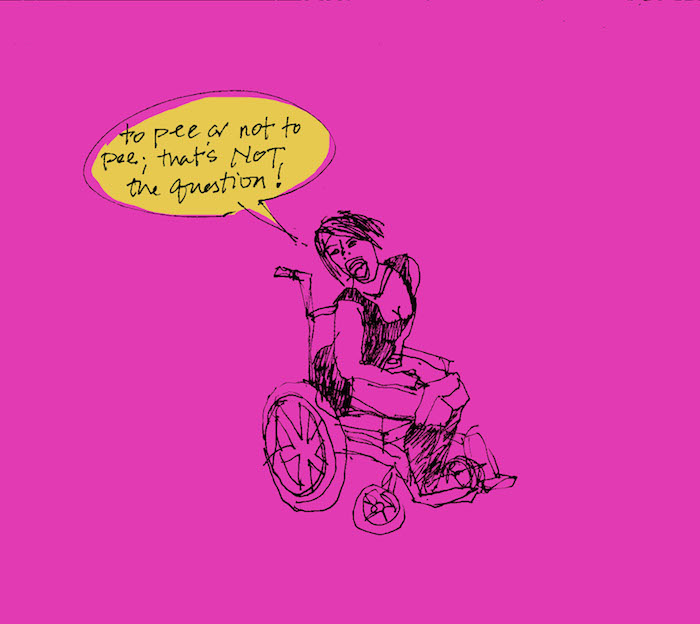Issue 29
the Week of November 2, 2015

In this issue, we discuss reproductive justice in the tech industry, and speak to Asian American women in the field about representation, inclusion and identity. We look at building club and music technology cultures that welcome and center femmes, and how “inclusive” spaces in tech are still harming marginalized people. Plus, a two-part feature on makeathons and assistive technology for people with disabilities. Photo CC-BY liz west, cropped.
Assistive Technology By People with Disabilities, Part II: Designing Better Makeathons
Makeathons and other similar events want to “do good” and “make the world a better place.” The people behind these events need to realize *how* they do them is as important as *why* they are doing them.
Assistive Technology By People with Disabilities, Part I: Introducing Team Free to Pee
Very often, specialized companies create assistive technology with little input from actual users with disabilities. These products are usually institutional in look and feel, overpriced, and only reimbursable by insurance.
Calling all Ladies, Dames and Fems: How Inclusive Spaces In Tech Harm the Communities Most in Need
Organizations run by primarily white, cis, straight founders train the majority of their focus on alleviating alienation for white cis women in cis male-centric spaces, but do little to dig deeper into other marginalized identities and access needs.
Femmes, DJs, Raves: Towards More Inclusive Club Cultures
We still see male-dominated lineup after male-dominated lineup, at clubs and festivals predominantly run by male bookers and promoters.
Why We Need Reproductive Justice in Tech
I’m advocating for you to incorporate reproductive justice as a lens through which to view your work in the tech industry.
Asian American Women in Tech: Lawsuits and Lived Experiences
Evidence that Asian American women haven't been fully included in technology is found not only in recent lawsuits, but in the lack of Asian American women in tech leadership.
This issue is made possible in part by some of our generous readers: Coda Hale, Marc Hedlund, Michele Titolo, Luis Bruno, Carl Friedrich Bolz, Bryan Luby, Deirdré Straughan and Robin Kunde.





